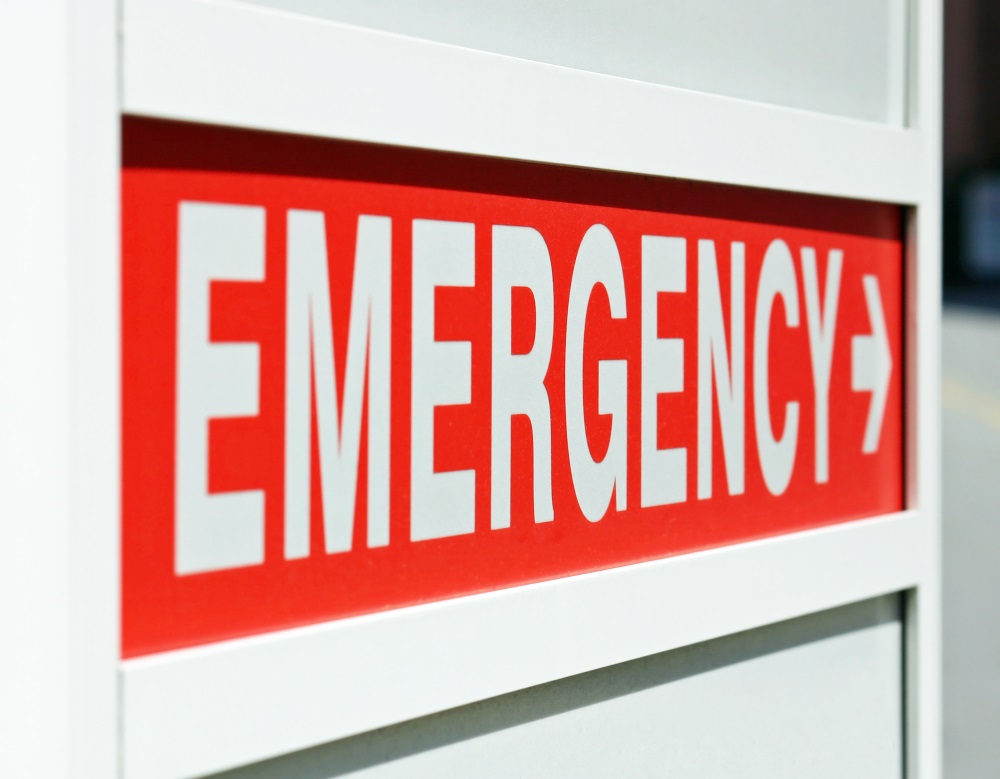How to Know if You Have a Dental Emergency
It’s important know whether the medical problem you have is mild, serious, or an emergency. This is true throughout the whole medical field, and dentistry is no exception.
To answer this question, the first thing you should consider is this: what type of dental problem is it? There are three main categories:
- If the problem can be treated at home by a non-professional, it’s mild. Getting something caught in your teeth or a minor burn inside of your mouth is a mild problem. You can deal with it at home, and it requires no special treatment.
- A serious problem is one that you can’t deal with at home, but, is not urgent. Stains on your teeth, mild pain or numbness can be serious problems, but they don’t require immediate care.
- An emergency is a problem that is severe and requires immediate treatment. The treatment must also be from a professional. Emergency dental problems include symptoms like: extreme pain or numbness, heavy bleeding, or a tooth falling out.

Signs of a Dental Emergency
Loose or Movable Tooth
If you are an adult, you should never have a loose tooth. If you have a loose tooth, seek help immediately. A loose tooth can be caused by injury, which is typically very painful. It can also be caused by an infection. Either way, you should make an emergency appointment with a dentist if you have a tooth that is loose or wiggly. Treatment can either help with the symptoms if injury caused it, or prevent the infection from spreading.
Broken, Cracked, or Chipped Tooth
A tooth that has been severely damaged by an injury will often be broken or cracked. This requires care as soon as you can get care. A tooth that is damaged this way can get worse because more of the tooth can break, the crack can spread, or the tooth can even fall out.
If you have this problem, call your dentist immediately. In the meantime, you can rinse your mouth with warm water to clean out anything that could get inside the damaged tooth. If the damage was caused by some type of trauma, you can apply a cold compress to the area if you’re experiencing swelling. You can also take acetaminophen, not Aspirin, to alleviate pain. Topical analgesic (painkiller) should not be applied to the gum, as it can further damage or burn the gum tissue.
Abscessed Tooth
An abscess is when puss builds up within the tooth and has led to an infection. This can be a life-threatening problem. Signs to look for are:
- The tooth is sensitive temperature
- You have a fever
- You have facial swelling
- A constant tooth ache
- And a small bump similar to a pimple that forms on the gums outside the tooth
This is an emergency because the infection can spread to your jaw and face. Rinse your mouth with mild salty water, and contact your dentist ASAP.
Look here to learn more about this potentially life-threatening problem.
Numb Tooth
Teeth have nerve endings, so when your tooth goes numb, it means the infection has spread to the root of your tooth. This is dangerous because it can easily spread to your gums and jaw. Not having any feeling in a tooth is never good, and if this is the case, you will need treatment immediately.
Bleeding and Aching Gums
Many people have slight bleeding after flossing. However, persistent bleeding from your gums is a sign of a serious problem. One of the biggest troubles with bleeding and aching gums is that there could be many different reasons for these issues, meaning a diagnosis is impossible to come by without help from a professional. It is incredibly important to get treatment early because gum diseases happen in stages, and after a certain point, the teeth might not be able to be restored. Get help early and your dentist will need to find the problem as soon as possible and start treating it.
Swollen Jaw
Swelling in the jaw is usually sign of infection or injury. No matter what the cause is, you will need emergency treatment. If you have a swollen jaw, fever, trouble breathing or swallowing, it is almost always a sign you have an infection.
Tissue Injury
Tissue damage can be caused by a burn, puncture, or a laceration inside the mouth, on the gums, or on the lips. If you have a serious mouth injury, it’s time to see a dentist or an oral surgeon. You will know the problem is severe because there will be strong pain, swelling, and lots of bleeding. Before you see the dentist, you can wash out your mouth with mild salty water, and take acetaminophen.
Severe Pain
If you are experiencing constant, intense pain in your teeth or mouth, schedule a dentist appointment. Whether it’s your tooth, your gums, inside your cheeks, or your jaw, severe pain should not be ignored under any circumstances. In the case of persistent, heavy bleeding, do not take aspirin; aspirin thins out the blood and can exacerbate the bleeding.
Here you can find a detailed list of dental emergency descriptions and symptoms.
Dental Emergency Quick Checklist
- Did you receive trauma to the face, teeth or jaw recently?
- Are you in severe pain?
- Do you have loose teeth?
- Did you lose a tooth?
- Is your mouth bleeding?
- Is there any swelling in the gums, mouth, lips, or jaw?
If the answer to any of those questions is yes, then you most likely have a dental emergency. Contact a dentist, oral surgeon, or periodontist immediately.
What to do if you have a dental emergency
Contact your dentist! If you don’t have a dentist, or you don’t have insurance, schedule an appointment with a free health clinic in your area, a dental school, or consider setting up a payment plan. For more info on what to do if you don’t have insurance, look here.
If you are in the Fort Worth area in Texas, and are having a dental emergency, contact Dr. Ku, D.D.S. for the best dental care and advice. Dr. Ku holds the award for being the top-rated dentist in the area in both 2017 and 2018, and his professional staff will work to treat your emergency immediately.





